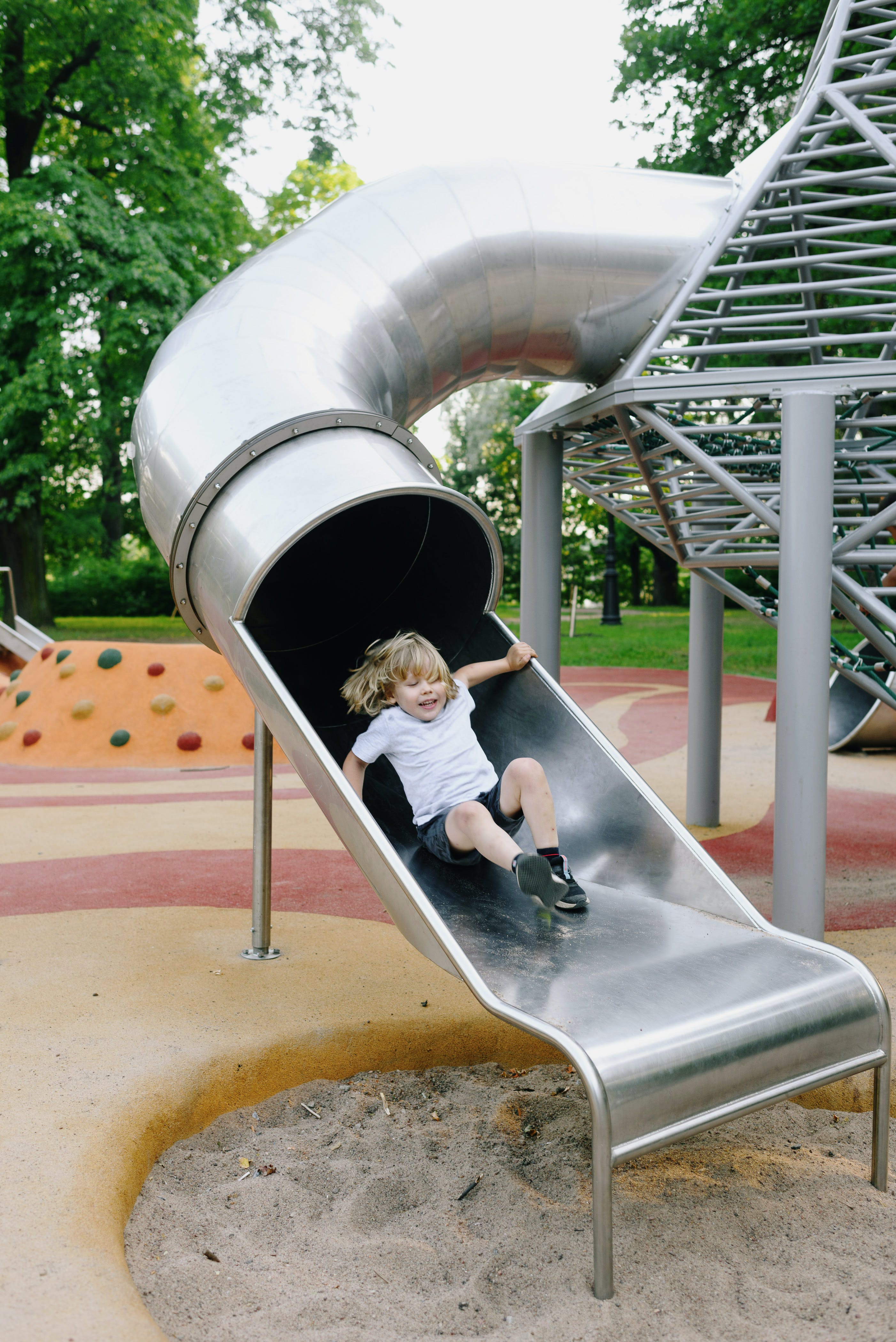
Playgrounds are wonderlands for children—vibrant spaces filled with laughter, imagination, and endless exploration. Amidst the joy and excitement of play, safety stands as a paramount concern. It's no coincidence that the ground beneath and around playground equipment is cushioned and soft. This intentional choice serves a critical purpose in ensuring the safety of our little adventurers.
Imagine a child swinging high or climbing a jungle gym, their exuberance sometimes leading to unexpected falls. Now, think about what happens if that fall occurs on a hard surface like concrete or asphalt. It's a concerning thought, isn't it? These hard surfaces pose a significant risk of severe head injuries if a child were to fall. This is precisely why playground surfacing is engineered to be soft and shock-absorbent.
The primary goal of a cushioned playground surface is to mitigate the impact of falls, particularly on the head. While it may not prevent every scrape or bruise, a well-designed surface significantly reduces the likelihood of life-threatening head injuries. It acts as a protective buffer, akin to a cushioned safety net, absorbing the impact and lessening the force of a fall. Consequently, this drastically lowers the risk of severe injuries, such as broken limbs or critical head trauma.
Experts and safety organizations have devised stringent testing methods, such as the ASTM F1292 Standard Specification for Impact Attenuation of Surface Systems Under and Around Playground Equipment, to evaluate the effectiveness of playground surfaces. These tests involve dropping a specialized instrumented metal head onto the surface and meticulously recording the impact's behavior. By doing so, they can measure and ensure that the surface adequately absorbs shock, meeting stringent safety standards.
These safety standards are maintained through both field and laboratory tests, ensuring that the playground surfacing material consistently meets safety requirements. Various materials are utilized for these surfaces, ranging from rubber mulch crafted from recycled tires to foam or rubber padding and even artificial turf with specialized cushioning layers. Each material possesses unique advantages, but their common goal remains to create safer environments for children to play.
However, ensuring playground safety isn't a one-time effort. Regular inspections and maintenance are crucial to sustaining the effectiveness of these cushioned surfaces. Over time, wear and tear or compression can diminish their shock-absorbing capabilities. By routinely assessing and maintaining these surfaces, we uphold their ability to protect and safeguard children during their playful escapades.
In essence, the soft and cushioned surfacing beneath playgrounds serves as a shield, safeguarding our children from potential harm during their moments of joy and adventure. These surfaces allow kids to explore, learn, and revel in their playful endeavors without the fear of serious injuries from falls. They represent a commitment to fostering safer play spaces, where children can thrive and create cherished memories.
The next time you witness children gleefully enjoying a playground, take a moment to appreciate the soft ground beneath them—a silent guardian ensuring their safety and allowing them the freedom to embrace the joy of childhood. After all, these cushioned surfaces are more than just ground coverings; they are a testament to our dedication to prioritizing safety in children's play areas.